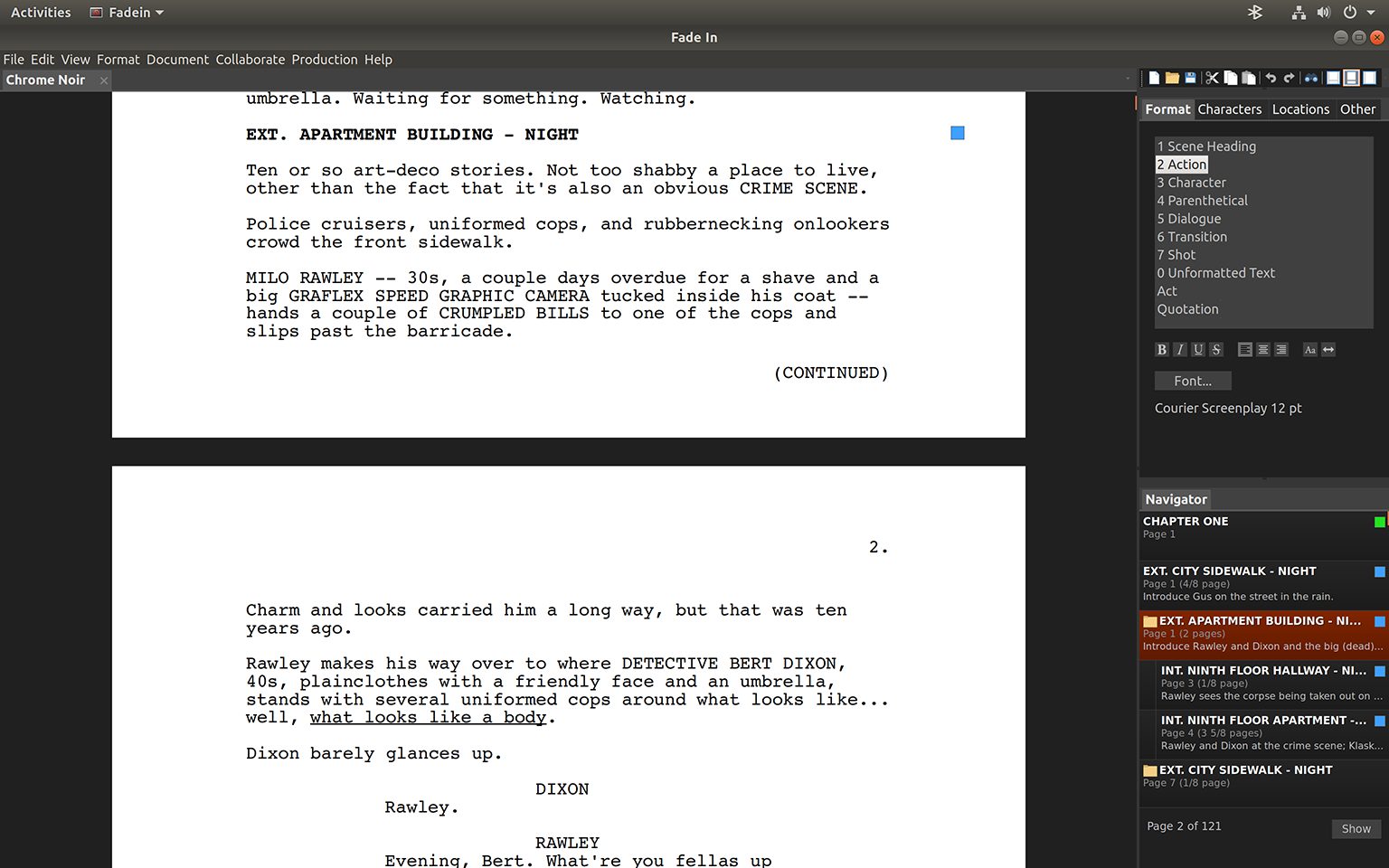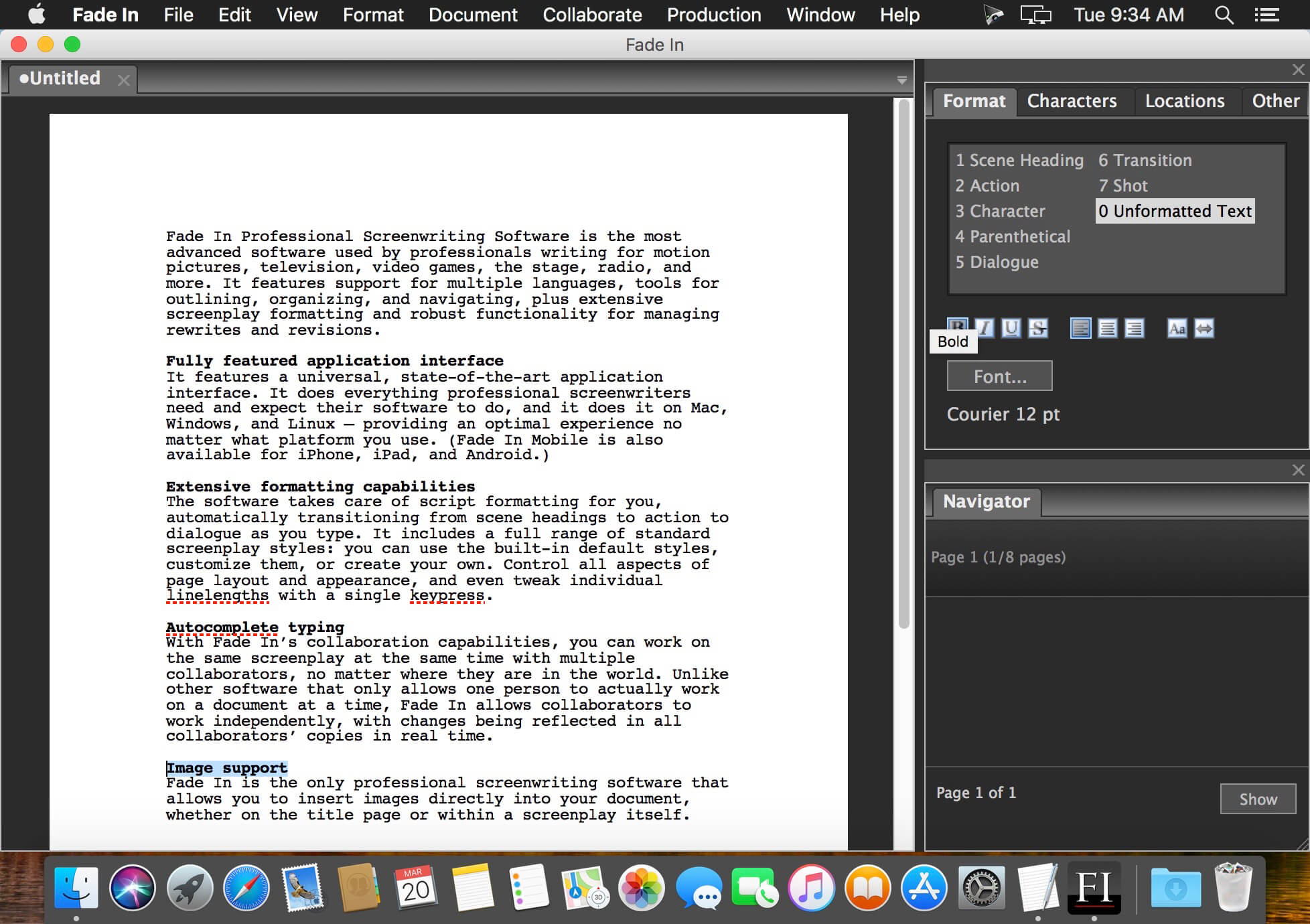Shane Black (born December 16, 1961) is an American film director, producer, screenwriter and actor who has written such films as Lethal Weapon and Lethal Weapon 2, The Monster Squad, The Last Boy Scout, Last Action Hero and The Long Kiss Goodnight. FADE TO: FADE OUT (never at the end of the script).
Noted actor Mamunur Rashid has aced his performances with his brilliant screen presence both on the silver screen and theatre. The Ekushey Padak awardee has also earned praises for his impeccable direction and screenwriting over the years. Being the chairperson of the Bangladesh Group Theatre Federation, his plays have received positive criticism from audiences both at home and abroad. On the occasion of 50 years of our independence, Mamunur Rashid walked down his memory lane and recounted the horrific memories of March 1971.
'I still have that horrible memory of March 50 years ago. I was 23 years old then. Glimpses of those days flash in front of my eyes as soon as March arrives,' he shares. 'The month of March is worth remembering for multiple reasons, the prime one being the historic speech on March 7, where one of the greatest orators of all time, Bangabandhu Sheikh Mujibur Rahman, called upon our independence and millions joined his cause without a second thought.'
For all latest news, follow The Daily Star's Google News channel.
During the night of March 25, 1971, the Pakistani army launched their attack on innocent people of the then East Pakistan, as the people were asleep. 'Fifty years have passed since I witnessed that dreadful event but I have lived a free life for the last five decades. What more could I ask for! In exchange for the blood of millions of martyrs and the honour of thousands of mothers and sisters, we have got independence,' he adds.
Mamunur Rashid recalled his account of the night of March 25, often referred to as 'Kaalo Ratri' in the history of this nation. 'I was at Abdus Samad's residence located at the city's Green Road that day, working on the script for a film named 'Shurjo Grohon'. 'Joy Bangla used to be the nation's favourite slogan back in those days,' he says. 'We started hearing gunshots suddenly at around 10:30 pm. Farmgate was surrounded with barricades, but tanks started to roll in, crushing the barricades into dust. We were close and saw some tanks moving towards Dhanmondi while some made way towards Rajarbagh.'

The actor had to spend the night at Abdus Samad's residence, where they locked themselves in and no one dared stepped outside. The sound of gunshots and rifles became louder, as the night deepened.
'Chaos and cry took over the nation as the bodies laid in masses at the roads of Dhaka University, Rajarbagh Police Line, and Peelkhana. 'It was dawn, time for Fajr prayers, and yet, neither did they cease-fire nor did they spare the masses.'
Mamunur Rashid spent the next day indoors, hearing the scream of people, as the Pakistani army burned down slums and rained rifle shots on the citizens. While the fear in his heart made him tremble in fever, Bangabandhu Sheikh Mujibur Rahman's words in the March 7 speech inspired him to take up whatever he could find and fight for our existence. The next day, the curfew was released.
'I used to live with my sister at Gulistan Railway Quarters back then, and finally decided to return to her. I took the road to Nilkhet and New Market, coming across hundreds of dead bodies, lying like butchered cattle on the streets,' he says. 'Hundreds fled Dhaka that day and afterwards, and I decided to move to Keraniganj. Soon, the army made way to Jinjira, and I had to move to the village of Shinepukur by boat. After roaming and hiding for days, I finally managed to reach my home in Tangail.'
While staying in Tangail, Mamunur Rashid started to help Abdul Kader Siddique by equipping people with weapons for the war. Later, he decided to move to Kolkata, and started working for the Swadhin Bangla Betar Kendra. 'These memories still wet my eyes. Today, we are celebrating our independence, but the days of struggle will never fade away from my mind,' he concludes.

Translated by Ashley Shoptorshi Samaddar
CHARACTERS:
FOREMAN:
A small, petty man who is impressed with the authority he has and handleshimself quite
formally. Not overly bright, but dogged.
JUROR NO. 2:
A meek, hesitant man who finds it difficult to maintain any opinions of his own. Easily swayed
and usuallyadopts the opinion of the last person to whom he has spoken.
JUROR NO. 3:
A very strong, very forceful, extremelyopinionated man within whom can be detected a streak
of sadism. He is a humorless man who is intolerant of opinionsother than his own and accustomed to forcing
his wishes and views upon others.
JUROR NO. 4:
Seems to be a man of wealth and position. He is a practicedspeaker who presentshimself well
at all times. He seems to feel a little bit above the rest of the jurors. His only concern is with the facts in this
case, and he is appalled at the behavior of the others.
JUROR NO. 5:
A naive, very frightenedyoung man who takes his obligations in this case very seriously but,
who finds it difficult to speak up when his elders have the floor.
JUROR NO. 6:
An honest but dull-witted man who comes upon his decisionsslowly and carefully. A man who
finds it difficult to createpositive opinions, but who must listen to and digest and acceptthoseopinions offered
by otherswhichappeal to him most.
JUROR NO. 7:
A loud, flashy-handed salesman type who has more importantthings to do than to sit on a jury.
He is quick to show temper, quick to form opinions on thingsaboutwhich he knows nothing. Is a bully and, of
course, a coward.
Fade Out In Screenplay
JUROR NO. 8:
A quiet, thoughtful, gentle man. A man who sees all sides of everyquestion and constantly
seeks the truth. A man of strengthtempered with compassion. Above all, he is a man who wantsjustice to be
done and will fight to see that it is.
JUROR NO. 9:
A mild gentle old man long sincedefeated by life and now merelywaiting to die. A man who
recognizes himself for what he is and mourns the days when it would have been possible to be courageous
without shieldinghimselfbehind his many years.
JUROR NO. 10 An angry, bitter man. He is man who antagonizesalmost at sight. A bigot who places no
values on any human life save his own, a man who has been nowhere and is goingnowhere and knows it deep
within him.
JUROR NO. 11:
A refugee from Europe who has come to this country in 1941. A man who speaks with an
accent and who is ashamed humble, almostsubservient to the peoplearound him, but who will honestly seek
justice because he has sufferedthrough so much injustice.
Juror NO. 12:
A slick, brightadvertising man who thinks of humanbeings in terms of percentages graphs, and
polls and has no real understanding of people. He is a superficial snob, but trying to be a good fellow.
NO. 12:
A slick, brightadvertising man who thinks of humanbeings in terms of percentages graphs, and
polls and has no real understanding of people. He is a superficial snob, but trying to be a good fellow.
ACT 1
Fade in on a jury box. Twelve men are seated in it, listeningintently to the voice of the judge as he charges
them. We do not see the judge. He speaks in slow, measured tones, and his voice is grave. The camera drifts
over the faces of the jurymen as the judge speaks, and we see that most of theirheads are turned to camera's
left. NO. 7 looks down at his hands. NO. 3 looks off in another direction, the direction in which the defendant
would be sitting. NO. 10 keepsmoving his head back and forth nervously. The judgedrones on.
JUDGE:
Murder in the first degree—premeditated homicide—is the most seriouschargetried in our criminal
courts. You've heard a long and complex case, gentlemen, and it is now your duty to sit down to try and
separate the facts from the fancy. One man is dead. The life of another is at stake. If there is a reasonable doubt
in your minds as to the guilt of the accused . . . then you must declare him not guilty. If, however, there is no
reasonable doubt, then he must be found guilty. Whichever way you decide, the verdict must be unanimous. I
urge you to deliberatehonestly and thoughtfully. You are faced with a grave responsibility. Thank you,
Fade In Screenwriting Download
gentlemen.
